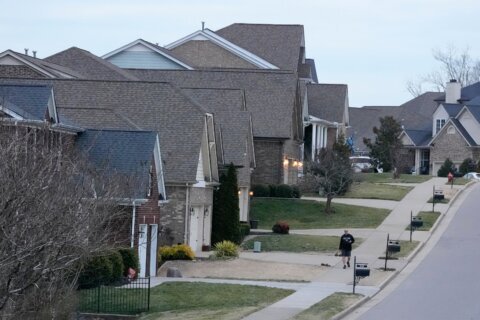WASHINGTON — Every weekend, thousands of cars trudge back from the eastern shore and across the Bay Bridge, the drivers having just spent hundreds or thousands to rent out motels, condos and homes on coast. It’s easy to dream about what life would be like owning one of those residences.
Before making it a reality, there are lots of factors to consider that you wouldn’t worry about around D.C.
While some financial advisers will tell you to buy a second home with cash, over the last year most people financed homes in Ocean City, Maryland, the more traditional way — with a mortgage — said Brian Shane, a realtor with Coldwell Banker Residential Brokerage.
Thanks to the financial crisis of a few years ago, banks have gotten smarter and stingier about giving out those second loans, and now often want you to have a down payment of 20 to 30 percent before giving you that home loan.
And if you think you’ll make all that money back just by renting out the home, you’ll probably be in for a rude awakening.
“It has a lot of different variables,” Shane said. “Are you in a direct, ocean-front, single family home? Where you can charge thousands of dollars per week? Or are you in a studio on the bay side with no view of anything?”
“Location, location, location,” Shane said, admitting it’s cliché but noting: “That’s the name of the game here.”
Then there are other costs to consider, costs which aren’t always relevant to a lot of homeowners.
“Have you thought about insurance on your unit? Have you thought about condo fees? Taxes? Carrying costs? If you want to have a place that’s rented out, you need to have some money in the bank in case your renter calls and says ‘hey, your air conditioner just broke.’”
Condo fees aren’t included in the mortgage, but it’s another expense that can suck money right out of your wallet.
“It’ll add up,” Shane said. “Some of these condos, they’re asking you for [thousands] a month, which will go toward building insurance, maintenance, the pool, making sure the roof and the parking lot are taken care of.”
“Folks who just have a regular, single family home, they’re not thinking about condo fees. Maybe they’ve never dealt with condo fees. But that’s a big part of what you’re paying for. The benefit of shared ownership does have a cost.”
In Ocean City alone, over 90 percent of the roughly 32,000 homes and condos there are considered “non-owner occupied,” which means they’re either someone’s vacation home or rented out.







